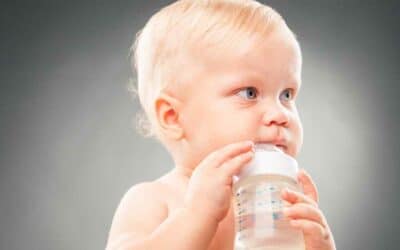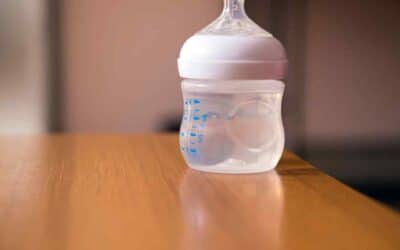Hello there, lovely new parents, and welcome to the exciting, sometimes perplexing world of parenthood! This wonderful journey you’ve embarked on is filled with firsts – your baby’s first smile, first word, first step. Each milestone brings immense joy, but also a slew of questions. After all, as parents, we always want the best for our little ones, and their health and well-being are our top priorities.
Among the many questions you might have is a seemingly simple one: “When should babies drink water?” It’s a fantastic question and more complex than it may initially seem. This is largely because the answer isn’t the same for every baby and varies depending on factors like age, dietary intake, and even the climate. In this article, we’re going to provide some guidelines and useful tips to help you understand when and how to safely introduce water into your baby’s diet.
So, grab a cup of tea (or coffee, we know sleep might be scarce these days!), and join us as we dive into this important topic.
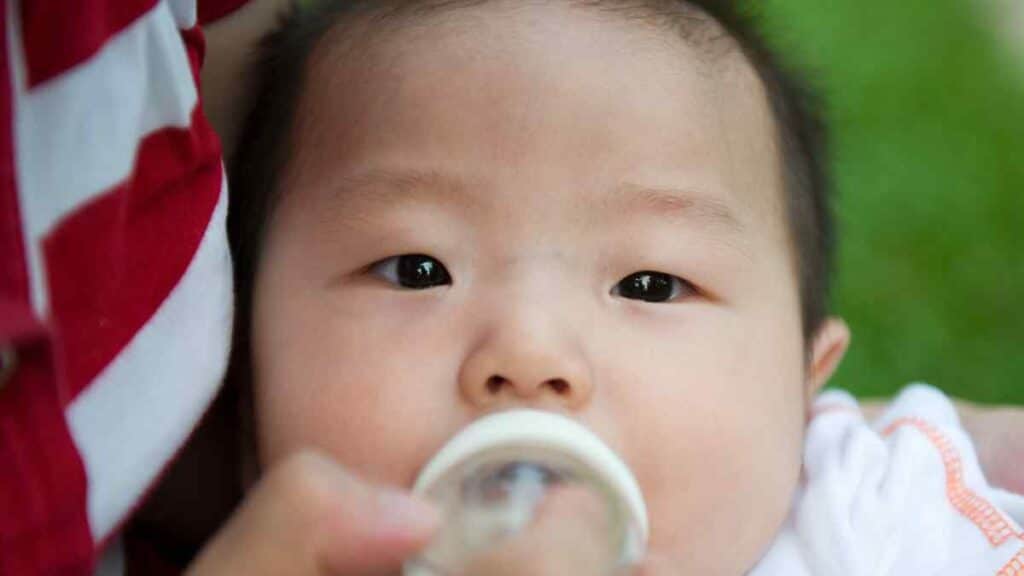
Learning Every Young Babies’ Nutritional Needs
1. Emphasis on the Role of Breast Milk or Formula
The American Academy of Pediatrics and most healthcare professionals universally agree that for the first six months of a baby’s life, the diet should primarily consist of breast milk or formula [1]. These provide all the essential nutrients that babies need for healthy growth and development.
2. Hydration from Breast Milk or Formula
Breast milk and formula aren’t just about nutrition—they’re also about hydration. These super fluids are composed mostly of water, ensuring your baby gets enough fluids to stay adequately hydrated. This eliminates the need for additional water intake during these early months.
Why Water Isn’t Needed for Newborns
1. Potential Complications from Giving Water to Newborns
One reason why newborns do not need additional water relates to a serious condition called water intoxication. Young babies’ kidneys aren’t mature enough to handle large amounts of water, and drinking water can dilute the electrolytes in their bodies, leading to potentially life-threatening issues such as seizures.
2. Expert Recommendations and Medical Opinions
Medical professionals agree that the best drinks for babies under six months of age are breast milk or formula. Not only do these provide babies with enough nutrients, but they also help in maintaining the baby’s body temperature and ensuring they are getting enough fluids.
Water Types for Babies: Purified vs Distilled
When babies start drinking water or when preparing baby formula, you might wonder about the kind of water to use. You may ask: “Can babies drink purified water?” or “Can babies drink distilled water by itself?”
The good news is both purified and distilled water can be used for baby formula and are generally safe for babies to drink. Distilled water goes through a process that removes nearly all its minerals, while purified water, like that from a home filtration system, has been processed to remove most of its impurities.
Whether you choose distilled or purified water for baby largely comes down to personal preference, availability, and whether or not your local tap water is safe and of high quality. However, be mindful that some types of purified water may still contain fluoride. If you want fluoride free water, it might be best to opt for distilled water or specifically seek out fluoride-free purified water.
Lastly, remember that the best water for baby formula or for your baby to drink is the one that adheres to safety standards and guidelines set by health and disease control authorities.
Preparing Baby Formula
Whether you’re using purified or distilled water, it’s crucial to safely prepare baby formula. The water should be used as is and not diluted with more water. Remember, diluting formula can lead to water intoxication and deprive your baby of enough nutrients. Always follow the instructions on the formula package to ensure proper nutrition.
While the world of parenting can be confusing, especially with so many opinions on the best way to care for your child, remember that every baby is unique. Trust your instincts, and when in doubt, always consult a healthcare professional to address any concerns you might have. Here’s to your baby’s health and happiness!

Introducing Water to Babies
Babies have unique hydration needs compared to adults, and new parents often have numerous questions about introducing water to their little ones: Can babies drink purified water? Is distilled water suitable for babies? When should babies start drinking water? This article aims to answer these queries and provide parents with some general guidelines and tips.
When Should Babies Drink Water?
According to the American Academy of Pediatrics, babies usually don’t need additional water beyond what they get from breast milk or formula for the first six months of life. It is typically recommended to introduce water to babies around the time they start consuming solid foods, which is about six months of age. However, several factors can influence this timeline, such as the baby’s weight, diet, and overall health.
It’s important to note that younger babies should not drink water by itself. Excessive water intake can lead to a rare but serious condition known as water intoxication. Symptoms of water intoxication may include fewer tears when crying, a sunken soft spot on the baby’s head, or severe dehydration. To ensure your baby stays hydrated and healthy, it’s best to follow the guidance of a trusted pediatrician.
Can Babies Drink Purified Water or Distilled Water?
Parents often wonder about the type of water suitable for their babies. Can babies drink purified water? What about distilled water? Or should it be tap water?
When it comes to using water for baby formula or offering a few sips to babies who’ve started eating solid food, it is generally safe to use tap water, purified water, or distilled water. Distilled water for babies is often marketed as “nursery water” and typically comes without fluoride. Purified water undergoes a process to remove chemicals and contaminants, but it may still contain fluoride. If you’re concerned about fluoride content, fluoride-free water is also an option.
However, parents must be aware of the quality of their local water. In some areas, tap water might contain high levels of lead or other contaminants, making it unsuitable for babies. In such cases, bottled water (either purified or distilled) would be the best water for baby formula.
For babies who’ve started consuming solid foods, introducing small sips of water from a sippy cup or straw cup can help them develop their cup drinking skills. Remember, the goal is not to fill up your baby on water but to introduce it as a complement to their diet.
Coordinating with a Pediatrician
Given the unique health and hydration needs of every baby, it’s crucial to coordinate with a pediatrician when introducing water. They can provide personalized advice, considering factors such as your child’s age, weight, and diet, and they can guide you on how much water your baby should drink as they continue to grow and eat more table food.
While water is a critical part of our diets, for babies, it must be introduced at the right time and in the right way. If you’re uncertain about any aspect, like whether your baby can have purified water or the suitability of distilled water for your baby, your pediatrician is the best resource.
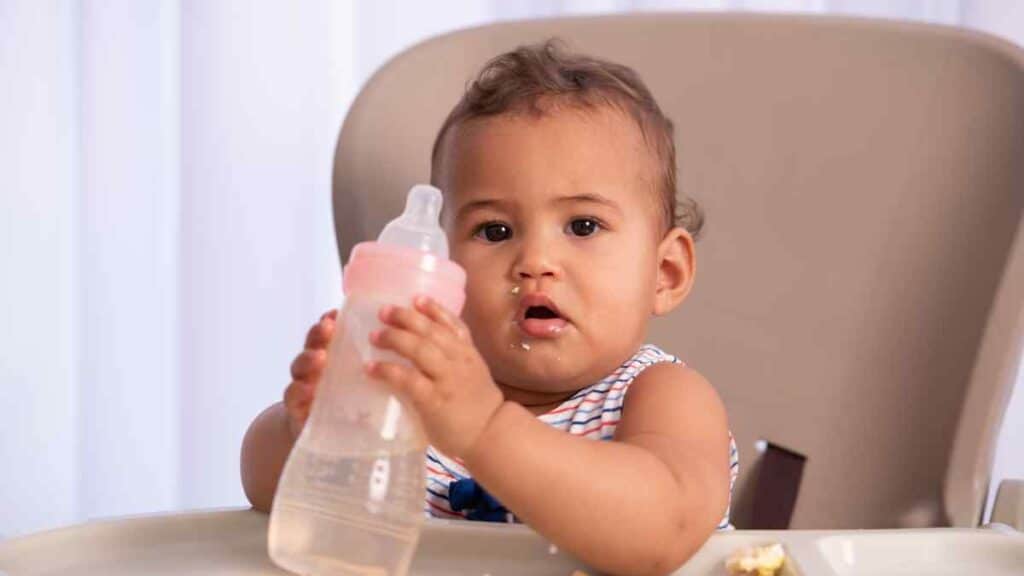
How to Encourage Babies to Drink Water As They Grow
As your baby grows and starts eating solid foods around 6 months of age, it’s time to introduce water. This phase is an important one, and many parents wonder about the best ways to encourage babies to drink water. This article provides tips to make water appealing to babies and toddlers and guidance on the gradual increase of water consumption in relation to decreasing milk or formula.
Making Water Appealing to Babies and Toddlers
One of the primary ways to encourage babies to drink water is by making the process enjoyable and interesting. Here are some tips:
1. Use a Sippy Cup or Straw Cup: These cups are great tools for transitioning from a bottle and making water drinking fun. Choose a cup with bright colors or your baby’s favorite characters to draw their interest.
2. Offer Water in an Open Cup: As your baby gets older, introduce water in a small open cup. The novelty of drinking like adults can make water more attractive to them.
3. Let them Explore: Allow your baby to play with the water and the cup. It may get messy, but it’s a great way for them to get used to water.
4. Model Healthy Hydration: Babies love to imitate. If they see you drinking water regularly, they are likely to do the same.
Gradual Increase of Water Intake
As per the American Academy of Pediatrics, once babies start solids, you can begin to introduce water in small amounts. However, it’s crucial to ensure they’re getting enough breast milk or infant formula, as these are their primary sources of nutrition.
Gradually increase water intake as they consume more solids, but be careful not to give too much water. A general guideline is 1 ounce of water for every month of age, up until 8 months, after which the intake can be gradually increased. Remember, the goal isn’t to replace milk or formula entirely with water, but to supplement a solid food diet.
The Role of Water in a Toddler’s Diet
By the time your child is a toddler, water plays a more prominent role in their diet. It’s an essential part of their hydration, especially when they are active. Water is a healthier choice compared to other drinks like fruit juice, which can be high in sugar.
Furthermore, water aids digestion and helps in nutrient absorption from the solid foods they consume. Encouraging your toddler to drink water can also foster good habits for healthy hydration in the future.
In conclusion, introducing and encouraging your baby to drink water as they grow is an important step in their development. Always consult with a pediatrician regarding your baby’s unique needs, and remember that making water drinking a fun and gradual process will ensure a smoother transition and a hydrated, happy baby.
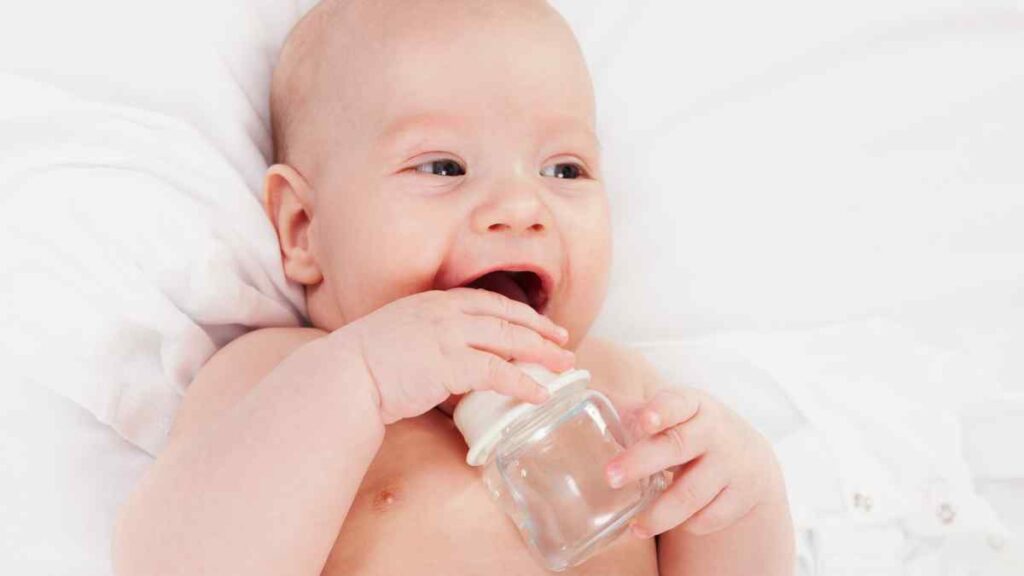
Conclusion
In conclusion, understanding when and how to introduce water to your baby is an important aspect of their growth and development. Babies get most of their hydration from breast milk or formula in the first six months of life, with water typically introduced around the same time they begin eating solid foods. However, every baby is unique and factors such as weight, diet, and overall health can influence this timeline.
Choosing the type of water for your baby, be it distilled, purified or tap water, is also crucial and largely depends on the quality of local tap water and the age of the baby. Whether you’re mixing formula or starting to give your baby a few sips, remember to do it in a way that complements their primary nutrition.
Most importantly, this process should always involve regular discussions with your pediatrician. They can provide personalized advice tailored to your baby’s needs. Never hesitate to reach out to them if you have any concerns or questions about your baby’s water intake or general hydration.
Ultimately, as you navigate this exciting phase of your baby’s life, remember that patience, observation, and maintaining open communication with your pediatrician are key to ensuring your baby’s health and wellbeing.
Let us know if this article was helpful to you. If you have any questions, don’t hesitate to ask.

